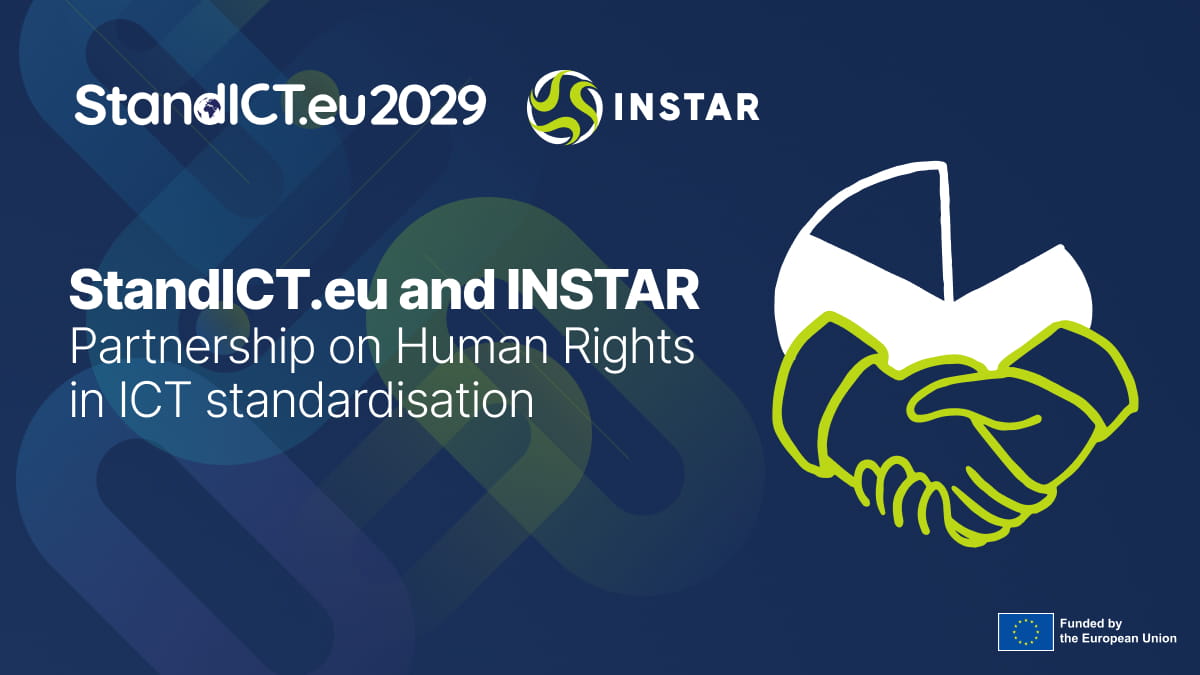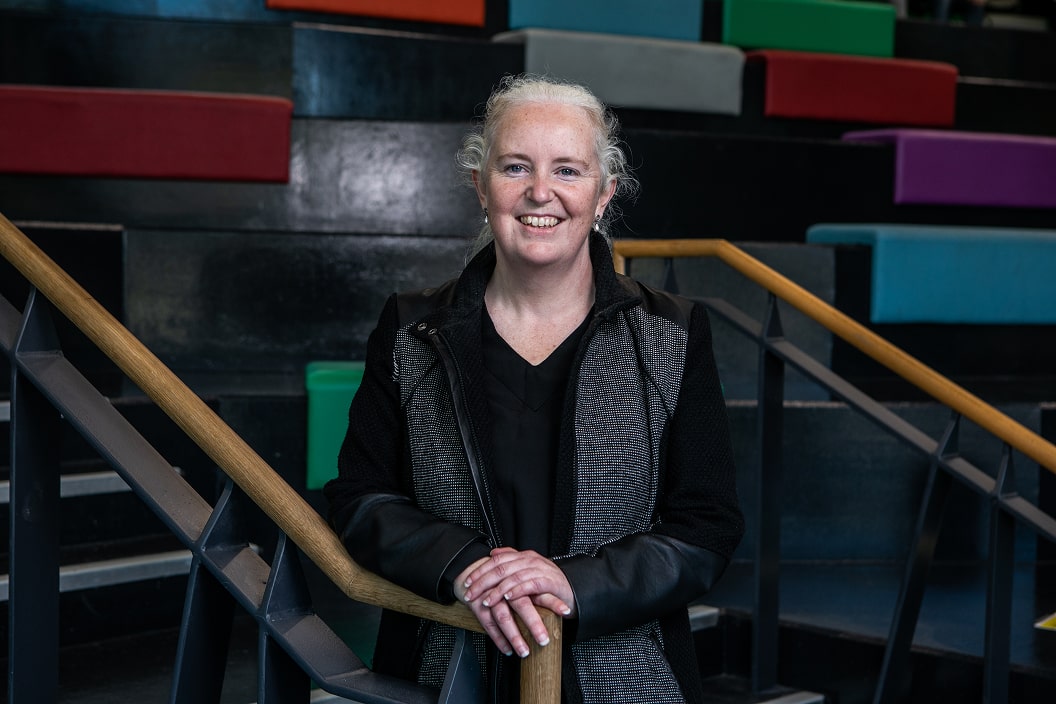Read time: 4 mins
The “Human Rights and ICT Standardisation: examples across diverse SDOs, current challenges and recommendations” report, co-published by HSBooster.eu, StandICT.eu as an output of the webinar “Human Rights and ICT Standardisation”, aims to bring visibility to the issue of how human rights are and should be considered when addressing ICT standardisation technical specifications.
Current landscape of Human Rights in ICT Standardisation
Rapid digital transformation has forced the European Union and the international standards world to reconsider traditional technical standardisation procedures. Historically, standards and human rights have been developed independently, with compliance not being legally binding and insufficient enforcement of adoption as a result of inefficient governance mechanisms.
The evolution of ICT technologies has augmented access to private information, inherently increasing the risk of designers and developers violating fundamental rights to privacy and security. As a result, pressure is building on decision-making bodies to reimagine the pathways for human rights and standards adoption. Considering they both offer complex and varied dimensions, the core challenge for standards and human rights experts lies in reconciling processes that were born for different purposes and built to correspond to alternative priorities.
The report highlights one suggestion for overcoming this barrier to advance towards an ecosystem of inherent rights-infused standards, and that is to envision human rights, standards and tech development coexisting as floors in a home without a staircase to connect them.
The top floor is occupied by lofty formulation of rights and laws such as the GDPR, the middle floor by standards and the bottom floor by tech development. Any desire for fundamental rights law to directly communicate with - and direct - standards and technology development is frustrated by the absence of a staircase connecting the floors.
Importance of the report
The report seeks to provide experts working in human rights and standards development a point of reference for translating high-level digital transformation visions into practical, human-centric standards. The nexus of human rights and standardisation commonly exposes a design deficiency, highlighting the importance of developing human rights compliant ICT standardisation specifications by default.
A fundamental notion in the report is that establishing policies that demand human rights to be embedded in the development, implementation and maintenance of ICT technologies facilitates innovation and safeguards against unlawful practices that may infringe on privacy and security rights.
The report includes the results from discussions during the live webinar, in combination with external research compiled alongside the event. More specifically, the report details the interactive panel discussion from the workshop, spotlighting each author, their specific area of expertise and dedicated insights. The report is an all-inclusive approach to understanding the integration of human rights into ICT standards across different domains and regions, providing regional specific details related to Europe and Latin America, as well as perspectives from specific stakeholders, research projects and across ICT domains.
Download Report
The following items provide a snapshot overview of the main findings and recommendations from the comprehensive report:
Strengthened International Cooperation
Developing ethically responsible standards requires coordination and interaction between the various international bodies and decision-makers, especially in more sensitive domains like cybersecurity, where the protection of individual rights and privacy is paramount.
Ongoing collaboration and continued dialogue
Just as digital technologies continue to evolve, there needs to be continuous collaboration from all actors involved (governments, private sector, research & academia, CSOs and international organisations) to ensure human rights are captured at each phase of standards development process
Importance of ethical leadership
Given the absence of true mechanisms or a governance structure to enforce human-centric rights are designed inherently, leaders must emerge from the public and private sectors to establish clear value and demand accountability within their own organisations, placing pressure on industry counterparts to do the same and solidify a landscape of compliance.
Consumer-centric standards
Developing standards with the end-user top of mind and being conscious of the privacy and safety of vulnerable groups like children and the elderly, ensures that technology is properly equipped to serve and benefit all members of society.
Bringing visibility to the topic
The event provided a platform for diverse participation among human rights and standards experts to discuss the important connection between standards and human rights and to close a knowledge gap between the two communities. This era of rapid digital transformation requires greater collaboration between like-minded stakeholders to reduce the cleavages and interruptions that halt digital innovations or violate the fundamental values of the EU.




